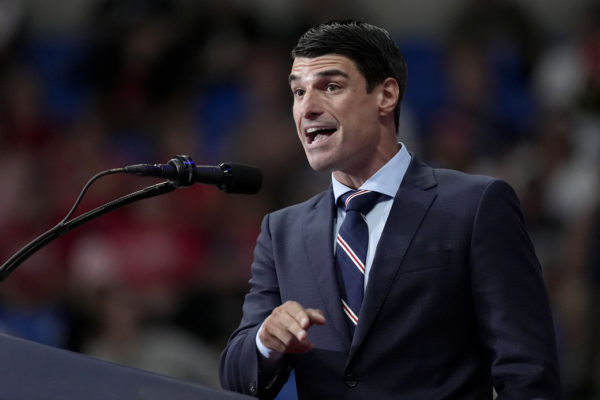Pennsylvania Rep. Rob Bresnahan is the latest swing-district Republican to issue a warning over deep spending cuts GOP leaders are targeting for key safety net programs in a bill to enact President Donald Trump’s massive domestic agenda.
“I ran for Congress under a promise of always doing what is best for the people of Northeastern Pennsylvania,” said Bresnahan in a statement Friday. “If a bill is put in front of me that guts the benefits my neighbors rely on, I will not vote for it. Pennsylvania’s Eighth District chose me to advocate for them in Congress. These benefits are promises that were made to the people of NEPA and where I come from, people keep their word.”
Bresnahan could become a major problem for GOP leadership in the coming days. Speaker Mike Johnson can afford to lose only one vote on any party-line legislation he wants to pass on the House floor. That includes the budget resolution the House Budget Committee advanced Thursday night, which is the first step in allowing lawmakers to move ahead on drafting the measure to enact top legislative priorities through the filibuster-skirting reconciliation process.
But Johnson and fellow GOP leaders are facing rising anger from vulnerable Republicans after agreeing to demands from their hard-right flank to force deeper spending cuts of $2 trillion in the budget resolution — which, if adopted, will dictate how much committees need to cut from programs under their jurisdiction to pay for the larger reconciliation legislation.
That means members will likely have to extract deeper spending cuts across Medicaid, food assistance and other safety-net programs. And Bresnahan, who flipped a blue district in northeast Pennsylvania last fall to help maintain the House GOP majority, is among the growing contingent of centrists blanching at that prospect.
Bresnahan is also part of a group of vulnerable Republicans who privately warned GOP leaders last month to not slash key safety net programs as they look for ways to pay for the sweeping domestic policy bill that spans border, energy and tax cuts.
Johnson, after placating hard-liners to advance his budget blueprint late Thursday, is now facing the immediate challenge of persuading more moderate members to back the plan, which he wants to put on the House floor when Congress returns from recess the final week of February.
GOP leaders have been careful to say they’re not cutting benefits, but rather looking to root out waste, fraud and abuse within Medicaid and other federal aid programs. That’s done little to assuage some Republicans’ concerns, especially as some GOP lawmakers quietly have said that the particularly high $230 billion in spending cuts targeted for the Supplemental Nutrition Assistance Program under the Agriculture Committee will require Republicans to cut current food aid benefits. That would be in addition to expanding work requirements and rescinding other flexibilities for states.

